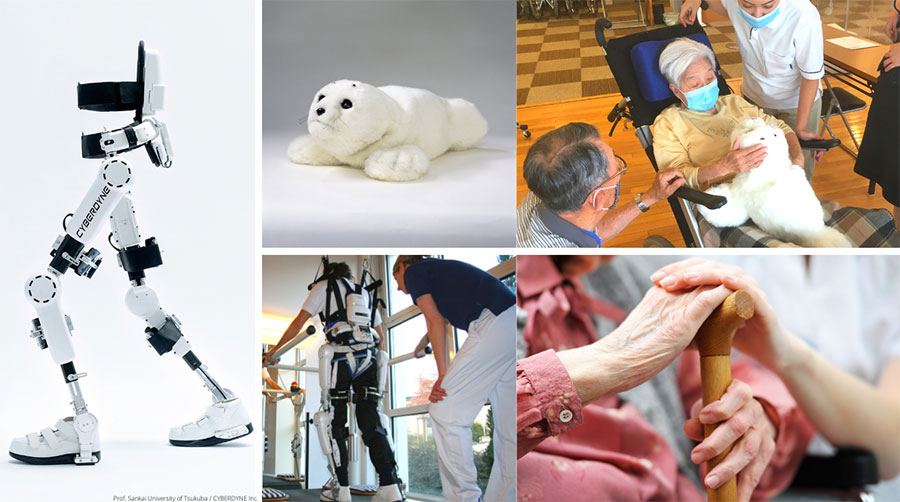
- Date
02.17.2021 (Wed.)
- Time
05:00 PM - 06:15 PM (PST)
- Location
Online
- Fee
Complimentary
An increase in life expectancy and a decrease in birth rates are leading populations around the world towards an aging society. According to the Urban Institute, there are over 54 million Americans today that are age 65 and older. By 2040, this number will increase to 80 million.
In this webinar, we explore how to live a long and healthy life by focusing on the latest AI technology and psychosocial care methods that can physically and mentally empower the older adult population. On the technology side, we hear from two experts from Japan, a nation with the highest proportion of aging citizens of any country in the world: Dr. Yoshiyuki Sankai, the developer of the world’s first wearable cyborg HAL, and Dr. Takanori Shibata, the inventor of PARO, the therapeutic seal robot. On the mental health side, psychotherapist and Geriatric Medical Social Worker Mrs. Shiori Lange, LCSW will discuss how psychosocial approaches can help older adults and their loved ones. UCLA Associate Professor Lené Levy-Storms Ph.D. moderates the panel.
*To watch the video in full screen, please click on the image above, then click on the YouTube icon on the lower right-hand corner.
Recording Available
The recording can be viewed within this event page or on the official JAPAN HOUSE Los Angeles YouTube Channel.
Please take a few minutes to complete a survey. Your responses will help us improve our future programming.
Take the Survey
Speaker Profiles
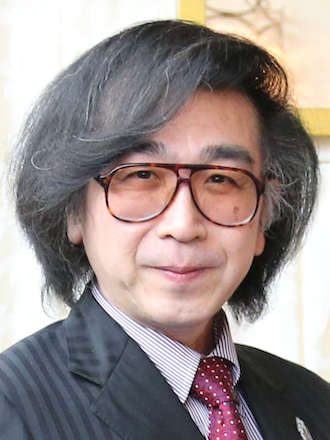
Yoshiyuki Sankai, Ph.D. | Founder, CYBERDYNE, INC., Developer of HAL
Yoshiyuki Sankai earned a Ph.D. in Engineering from the University of Tsukuba in Japan in 1987. He has progressed from being a research fellow at the Japan Society for the Promotion of Science (“JSPS”) to assistant professor, associate professor, and then professor at the Graduate School of Systems and Information Engineering, University of Tsukuba. Dr. Sankai is also a visiting professor at Baylor College of Medicine in Houston, Texas in the United States.
Currently, he is a professor, Executive Research Director at the Center for Cybernics Research and Director at the R&D Center for Frontiers of MIRAI in Policy and Technology and University of Tsukuba; and the President and CEO of CYBERDYNE, INC.
He is a fellow of the Robotics Society of Japan (“RSJ”) (2012) and the Society of Instrument and Control Engineers (“SICE”) (2014). He also served as Chairman (2005) and an Executive Board Member (2004-2005) of Advanced Robotics, as well as an Executive Board Member (2000-2012), Congress Head (2003), and President (2003) of the Japan Society of Embolus Detection and Treatment. He was a Program Manager of the Impulsing Paradigm Change through Disruptive Technologies (“ImPACT”) program, which was initiated by the Council for Science, Technology and Innovation (“CSTI”) of the Cabinet Office in Japan(2014-2018) and a member of Global Agenda Council on Robotics & Smart Devices of World Economic Forum (2011-2014). Now he is a Center Partner of the Center for the Fourth Industrial Revolution (2017-) , a member of Global Future Council of Production (2018-) , a member of Global Precision Medicine Council (2019-) of World Economic Forum and Business producer of Program for Building Regional Innovation Ecosystem by Ministry of Education, Culture, Sports, Science and Technology (“MEXT”).
He has established and championed a new academic field, “Cybernics: the fusion and combination of humans, robots and information systems,” bringing together differing realms of academia in brain/neuroscience, behavioral science, robotic engineering, IT, artificial intelligence, system integration, biology, psychology, philosophy, ethics, law, and business. “Cybernics” fuses “Humans” with “Cyber/Physical Space", and this concept runs at the core of the cutting edge innovations he has developed. Equipped with Cybernics, he is addressing the social issues of a super-aging society with the development of innovative technologies, establishment of new industries, and cultivation of next-generation entrepreneurs, and pioneering the future through the promotion of a virtuous cycle of innovation.
His achievements include the development of HAL, the world’s first “Wearable Cyborg” that promotes functional improvement/regeneration of the brain, nerve, and physical systems, from basic research on its motion principle through prototype testing, evaluation, and real-world implementation. In addition to Medical HAL, he continues to advance the development and application of various Cybernic systems (Vital Sensor, Precision Medicine, Human Big Data aggregation, AI analytics and statistical computing with super computers, other Cybernic robots) and is working toward the realization of a social and industrial visions known as “ZERO Burdening-Care Society” and “Society 5.0/5.1” In an effort to use his research results for the benefit of society, in June 2004, Dr. Sankai founded CYBERDYNE, INC.; a company designed to pioneer the future by developing, manufacturing, and commercializing innovative Cybernic systems and services in the fields of medicine, welfare, labor, production, and life. In March 2014, the company was listed in the “Mothers” section of the Tokyo Stock Exchange, as the first company to issue class shares in Japan. In addition, due to its distinctive advanced technology and growth probability, the company was awarded FY2013’s ”IPO of the Year” and FY2014’s “Innovative Equity Deal of the Year” by Thomson Reuters Market, becoming the first company ever to receive an award two years in a row. Now, Dr. Sankai is acting as a core member of the Ministry of Land, Infrastructure, Transport and Tourism’s Smart City Project/Tsukuba Promotion Council, as well as a founding core member of the Tsukuba Conference.
【Main awards associated with Yoshiyuki Sankai】
2005 The 2005 World Technology Award (Grand Prize)
2006 Good Design Award (Gold Prize) Japan Innovator Award (Award of Excellence)
2007 The Minister of Economy, Trade and Industry Award 2009 21st Century Invention Award at the National Invention Awards, “Development of Cyborg-type Robot Technology”
2011 NetExplorateurs of the Year 2011 at France UNESCO Headquarters
2012 The 2012 Capek Award at INNOROBO
2013 The 2014 Technology Pioneer at the Davos World Economic Forum 2014
2014 Edison Awards Gold Award DealWatch Awards 2013, IPO of the Year at Thomson Reuters
2015 Minister of Education, Culture, Sports, Science and Technology Award, DealWatch Awards 2014, Innovative Equity Deal of the Year (Thomson Reuters), The Minister of Economy, Trade and Industry Award Zaikai Business Leader of the Year Award
2016 DIA Japan Outstanding Contribution to Health Award Robot Award - Minister of Health Labour and Welfare Award
2017 Prime Ministers Award (The Nippon Venture Award)
2019 Ministry of Education, Culture, Sports, Science and Technology Award (Technology Management and Innovation Award) Ichimura Prize in Industry for Distinguished Achievement The Medal of Honor with Purple Ribbon
2020 Intellectual Property Achievement Awards, Minister of Economy, Trade and Industry Awards
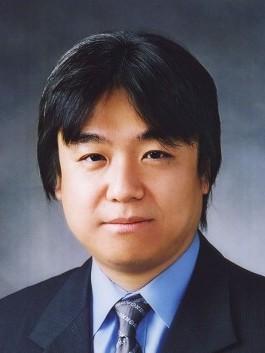
Takanori Shibata, Ph.D. | Chief Senior Research Scientist, National Institute of Advanced Industrial Science and Technology Inventor of PARO
Prof. Takanori Shibata was born in 1967 and received B.S., M.S. and Ph.D. in Electronic and Mechanical Engineering from Nagoya University in 89, 91 and 92, respectively. He was a research scientist at AIST from 93 to 98.
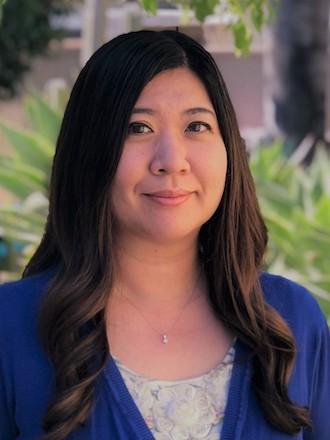
Shiori Lange, LCSW | Psychotherapist and Geriatric Medical Social Worker
Shiori Lange was born and raised in Saga, Japan. She came to the U.S in 1999. Shiori obtained her Bachelor's degree in Family Studies and Human Development from University of Arizona and obtained her Master's degree in Social Work from California State University, Long Beach.
Moderator Profile
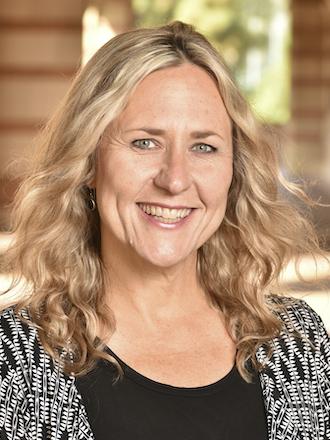
Lené Levy-Storms, Ph.D. | Associate Professor, UCLA Luskin School of Public Affairs
Lené Levy-Storms is an Associate Professor in the Luskin School of Public Affairs, Department of Social Welfare and the Geffen School of Medicine, Department of Medicine, Division of Geriatrics at UCLA. Dr. Levy-Storms’ primary research has focused on communication as a mechanism for social support and caregiving for older adults, especially those living with Alzheimer’s disease (AD).
Presented by


